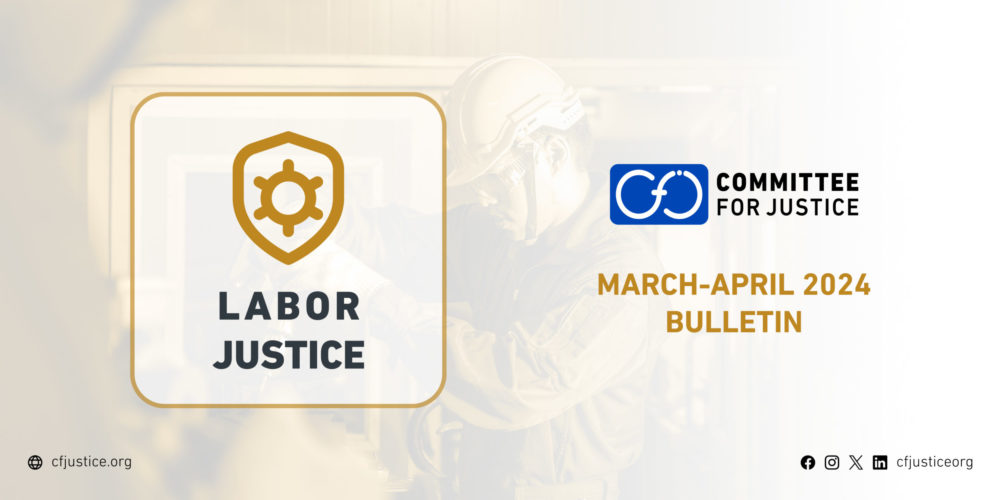The Committee for Justice has issued its Labor Justice Bulletin for the period (March and April 2024), which tracks political and economic developments in Egypt that have impacted labor justice in the country, as well as the most significant labor movements and violations against workers during the same period.
Exchange rate increase
The bulletin highlighted the key decisions affecting workers in Egypt, including the adjustment of the exchange rate of the dollar against the Egyptian pound in early March, where the dollar rate in banks exceeded 50 Egyptian pounds. This, of course, affected the most vulnerable segments of society, particularly workers.
During the bulletin period, the World Bank also published its annual report on barriers to women in the labor market and economy worldwide. The report’s general index measures the status of women in eight areas: mobility equality, workplace, wages, marriage, status, entrepreneurship, ownership, and pension. Egypt ranked 175th out of 190 countries, marking a drop of 4 places from the previous year.
Two strikes and five protest sit-ins
The Committee for Justice recorded two strikes and five protest sit-ins during the bulletin period. These included a protest sit-in organized by 100 teachers in front of the executive body of the General Authority for Adult Education in Cairo, demanding the implementation of court rulings to make their work contracts permanent. Hundreds of engineers from Alexandria Construction Company, owned by businessman Talaat Moustafa, organized a protest on March 27 to improve their wages. Workers of Nile Company for Roads and Bridges went on strike starting March 27, lasting for nearly two weeks, demanding the application of the minimum wage. During these two months, workers of the Holding Company for Water and Wastewater organized protest sit-ins across various company branches in different governorates, including Aswan, Sohag, and Giza, primarily demanding the restructuring of the wage scale and the application of the minimum wage for all employees. By the end of March, workers of the second and third plants at the Leoni Egypt factory for car harnesses in Badr City, Cairo, staged a partial strike to protest low wages.
Prosecutions
The bulletin highlighted the security prosecutions that workers suffered, including the continued detention of two workers at Ghazl El Mahalla, the summoning of National Security Agency workers from the Holding Company for Water and Wastewater to pressure them to end their protest sit-ins, and the arrest of two labor activists and unionists, Shady Mohamed and Ahmed Abdel Fattah. Additionally, the management of Universal Electrical Appliances persisted in its obstinacy by not implementing a court ruling in favor of seven workers who were arbitrarily dismissed. The labor court ordered their reinstatement and the payment of their withheld financial entitlements.
The Committee for Justice also documented the deaths of three workers and the injury of 26 others due to accidents while performing their work.






